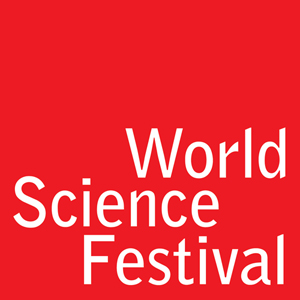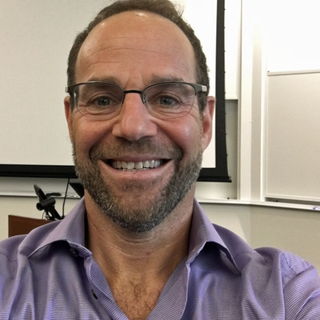Related Research Articles

Günter Blobel was a Silesian German and American biologist and 1999 Nobel Prize laureate in Physiology for the discovery that proteins have intrinsic signals that govern their transport and localization in the cell.

Baruch Samuel Blumberg, known as Barry Blumberg, was an American physician, geneticist, and co-recipient of the 1976 Nobel Prize in Physiology or Medicine, for his work on the hepatitis B virus while an investigator at the NIH and at the Fox Chase Cancer Center. He was president of the American Philosophical Society from 2005 until his death.

The Summer Science Program (SSP) is an academic summer program where high school students experience college-level education and do research in celestial mechanics by studying the orbits of asteroids, biochemistry by studying the kinetic properties of enzymes, or genomics by studying antibiotic resistance. The program was established in 1959 at The Thacher School in Ojai, California. It now takes place on three astrophysics campuses, New Mexico Tech in Socorro, New Mexico, the University of North Carolina at Chapel Hill in Chapel Hill, North Carolina, and University of Colorado, Boulder in Boulder, Colorado, and two biochemistry campuses, Purdue University in West Lafayette, Indiana and Indiana University Bloomington in Bloomington, Indiana.

Aaron Ciechanover is an Israeli biologist who won the Nobel Prize in Chemistry for characterizing the method that cells use to degrade and recycle proteins using ubiquitin.

The Clinton Foundation is a nonprofit organization under section 501(c)(3) of the U.S. tax code. It was established by former president of the United States Bill Clinton with the stated mission to "strengthen the capacity of people in the United States and throughout the world to meet the challenges of global interdependence." Its offices are located in New York City and Little Rock, Arkansas.

Bitcoin is a protocol which implements a public, permanent, and decentralized ledger.

The World Science Festival is an annual science festival hosted by the World Science Foundation, a 501(c)(3) nonprofit organization based in New York City. There is also an Asia-Pacific event held in Brisbane, Australia.

Peter J. Levine is an American software executive and venture capitalist.
The Bitcoin Foundation is an American organization that was formerly a nonprofit corporation. It was founded in September 2012 in an effort to restore the reputation of Bitcoin after several scandals, and to try to promote its development and uptake. The organization is modeled on the Linux Foundation and was funded mainly through grants made by for-profit companies that depend on the bitcoin technology.
Freedom of the Press Foundation (FPF) is a non-profit organization founded in 2012 to fund and support free speech and freedom of the press. The organization originally managed crowd-funding campaigns for independent journalistic organizations, but now pursues technical projects to support journalists' digital security and conducts legal advocacy for journalists.

Charles Shrem IV is an American entrepreneur and bitcoin advocate. He co-founded the now-defunct startup company BitInstant, and is a founding member of the Bitcoin Foundation. In 2014 he was sentenced to two years in prison for aiding and abetting the operation of an unlicensed money-transmitting business related to the Silk Road marketplace. He was released from prison in 2016. In 2017, he joined Jaxx and served as its chief operating officer, and founded cryptocurrency advisory CryptoIQ.

BitPay is a bitcoin payment service provider headquartered in Atlanta, Georgia, United States. It was founded in May 2011 by Tony Gallippi and Stephen Pair. BitPay provides Bitcoin and Bitcoin Cash payment processing services for merchants.

Vitaly Dmitrievich Buterin, better known as Vitalik Buterin, is a Russian-Canadian computer programmer, and co-founder of Ethereum. Buterin became involved with cryptocurrency early in its inception, co-founding Bitcoin Magazine in 2011. In 2014, Buterin deployed the Ethereum blockchain with Dimitry Buterin, Gavin Wood, Charles Hoskinson, Anthony Di Iorio, and Joseph Lubin.
The Calyx Institute is a New York-based 501(c)(3) research and education nonprofit organization formed to make privacy and digital security more accessible. It was founded in 2010 by Nicholas Merrill, Micah Anderson, and Kobi Snitz.

Stellar, or Stellar Lumens, is an open-source, decentralized protocol for digital currency to fiat money low-cost transfers which allows cross-border transactions between any pair of currencies. The Stellar protocol is supported by a Delaware nonprofit corporation, the Stellar Development Foundation, though this organization does not enjoy 501(c)(3) tax-exempt status with the IRS.

The BitGive Foundation is an American nonprofit organization that solicits bitcoin donations for use in charitable causes.

The Fisher Center for Alzheimer's Research Foundation is an American nonprofit organization that supports research into the causes and treatment of Alzheimer’s disease. The organization's mission is to “understand the causes of Alzheimer's disease, improve the care of people living with it, and find a cure.” The Foundation is funded through donations from the public.
Bitcoin is a digital asset designed by its pseudonymous inventor, Satoshi Nakamoto, to work as a currency.

Gavin James Wood is an English computer scientist, a co-founder of Ethereum and creator of Polkadot and Kusama.

Tezos is an open-source blockchain that can execute peer-to-peer transactions and serve as a platform for deploying smart contracts. The native cryptocurrency for the Tezos blockchain is the tez. The Tezos network achieves consensus using proof-of-stake. Tezos uses an on-chain governance model that enables the protocol to be amended when upgrade proposals receive a favorable vote from the community. Its testnet was launched in June 2018, and its mainnet went live in September 2018.
References
- ↑ Bilton, Nick (May 20, 2015). "Ava of 'Ex Machina' Is Just Sci-Fi (for Now)". The New York Times . Retrieved 5 April 2016.
- 1 2 Vance, Ashlee (July 20, 2010). "The Lifeboat Foundation: Battling Asteroids, Nanobots and A.I." The New York Times . Retrieved 5 April 2016.
- ↑ "Lifeboat Foundation Advisory Boards". lifeboat.com. Retrieved 2023-02-07.
- ↑ Rainey, Sarah (February 11, 2015). "This 'King of Love' runs the world's largest dating agency". Business Insider . Retrieved 5 April 2016.
- ↑ Klien, Eric. "Eric Klien". Lifeboat Foundation. Lifeboat Foundation. Retrieved 5 April 2016.
- 1 2 Vance, Ashlee (December 15, 2011). "Guardians of the Apocalypse". Bloomberg Businessweek . Retrieved 5 April 2016.
- ↑ Burrows, William E. (February 2, 2007). "Colonize the Moon". The Wall Street Journal . Retrieved 5 April 2016.
- ↑ Ungerleider, Neal (April 2, 2013). "Funding A Non-Profit With... Bitcoins?". Fast Company . Retrieved 5 April 2016.
- ↑ "Board of Directors". Lifeboat Foundation. Retrieved May 21, 2020.
- ↑ Ungerleider, Neal (November 29, 2011). "How Stephen Wolfram Is Preparing For The Singularity". Fast Company . Retrieved 5 April 2016.
- ↑ Brin, David (June 17, 2012). "How will the world end?". Salon . Retrieved 5 April 2016.
- ↑ Bentham, Harry J. (March 31, 2016). "Book Review: Visions of the Future (2015)". H+ Magazine . Retrieved 5 April 2016.
- ↑ Cave, Stephen (January 8, 2016). "Is predicting the future futile or necessary?". Financial Times . Retrieved 5 April 2016.